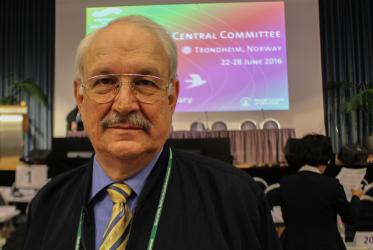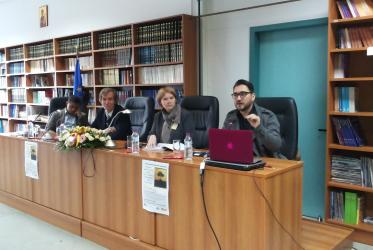Displaying 141 - 160 of 234
WCC climate change group plans advocacy strategy
10 October 2016
Tveit offers input at religion and development meeting
03 October 2016
WCC general secretary reflects on peace in Palestine and Israel
20 September 2016
International affairs facilitator reflects on pilgrimage
31 March 2016
Theology and climate change focus of consultation
16 March 2016
Religious leaders as agents of peace in the Americas
02 March 2016










